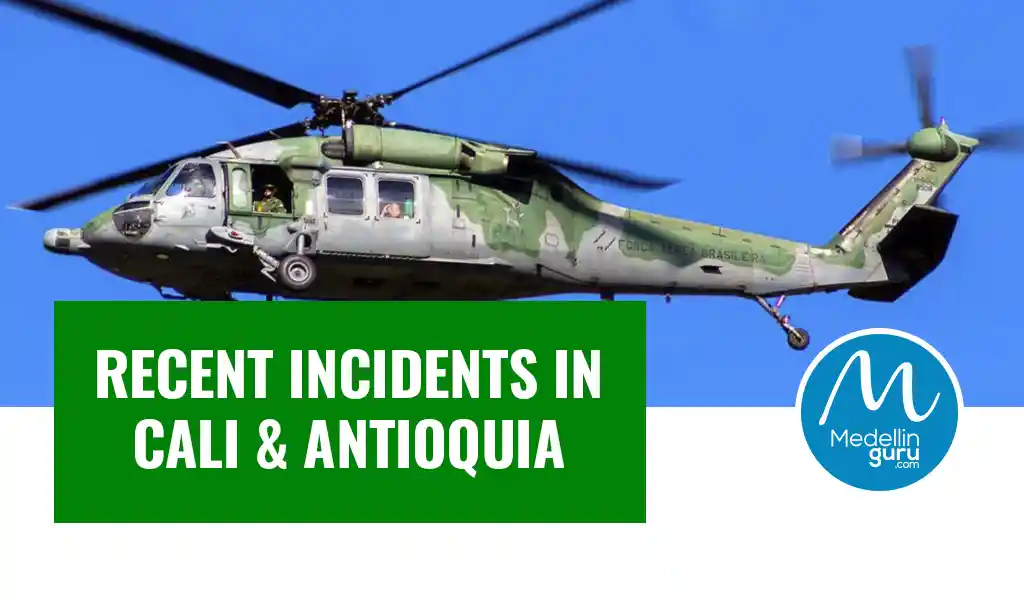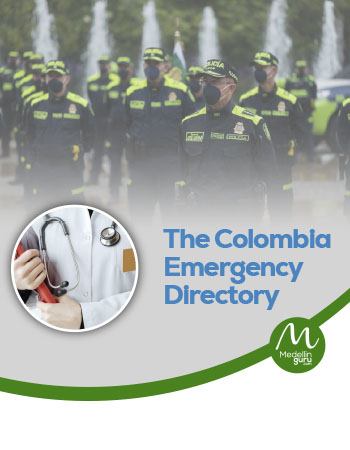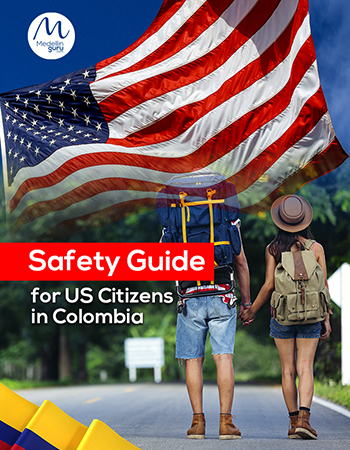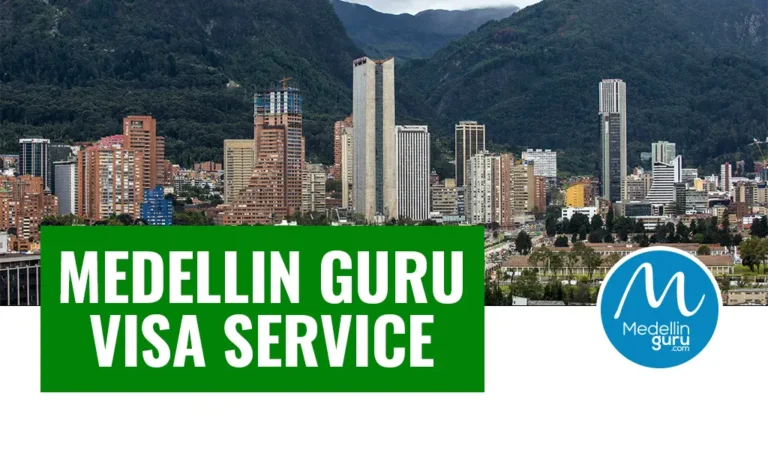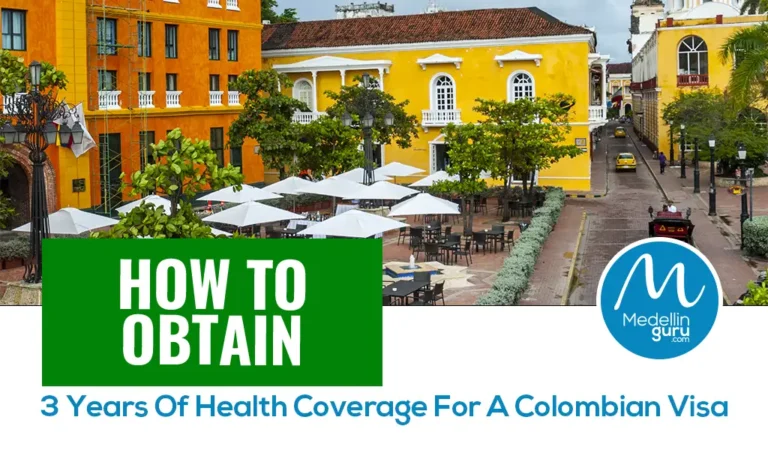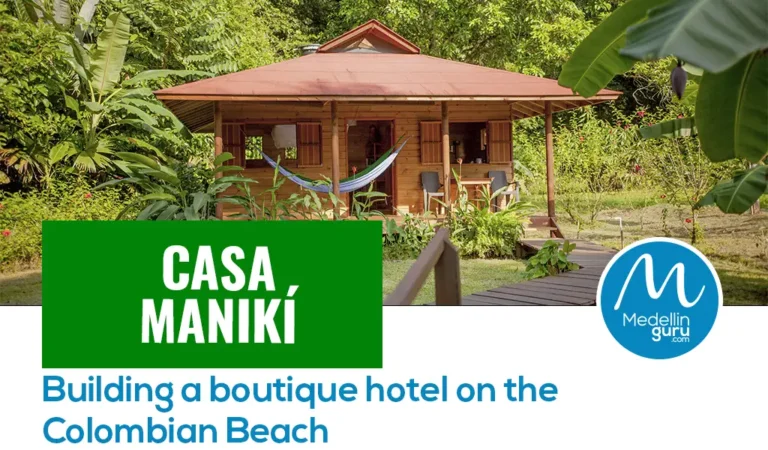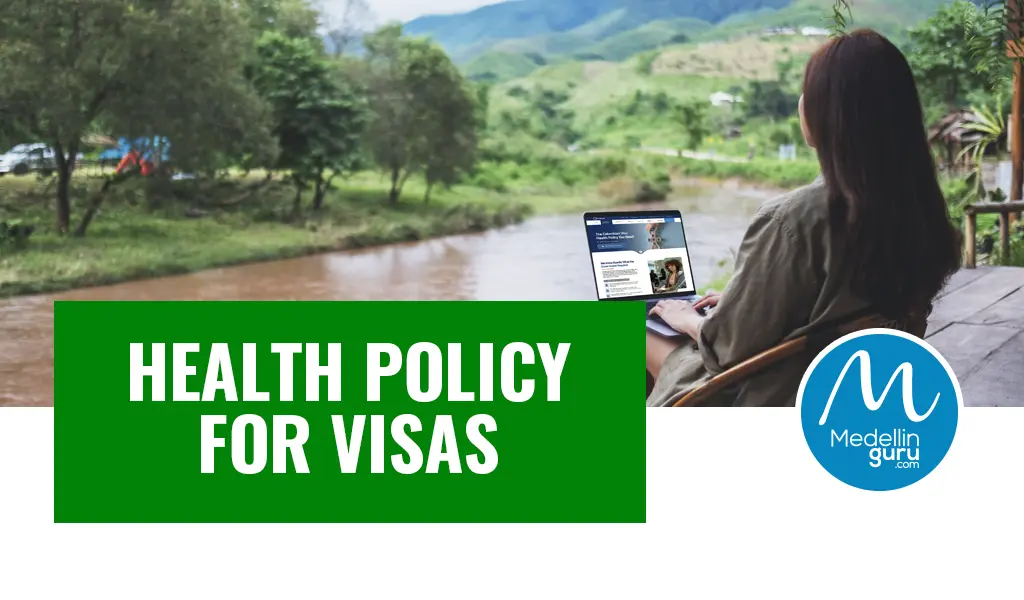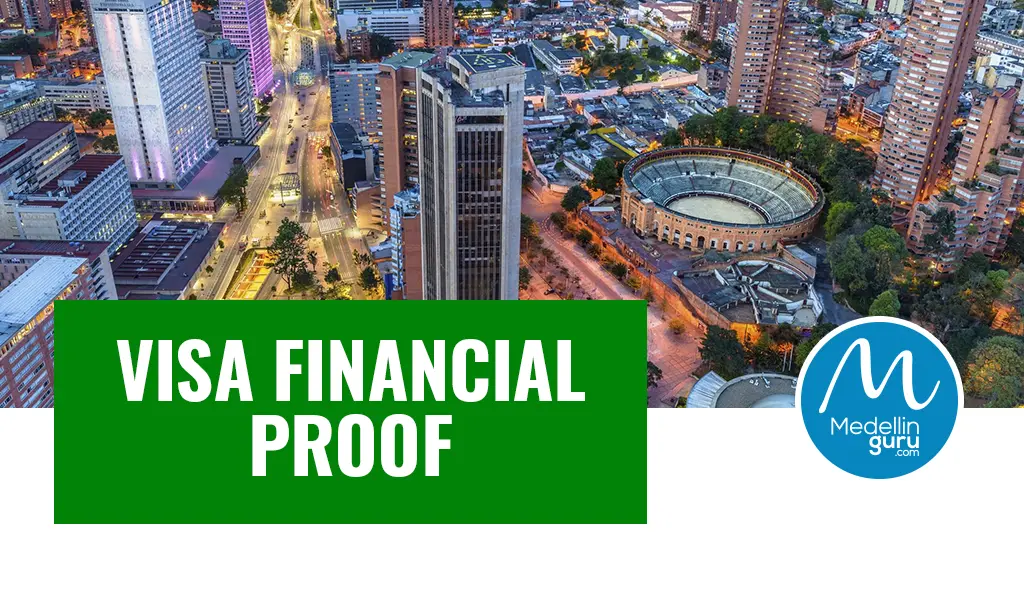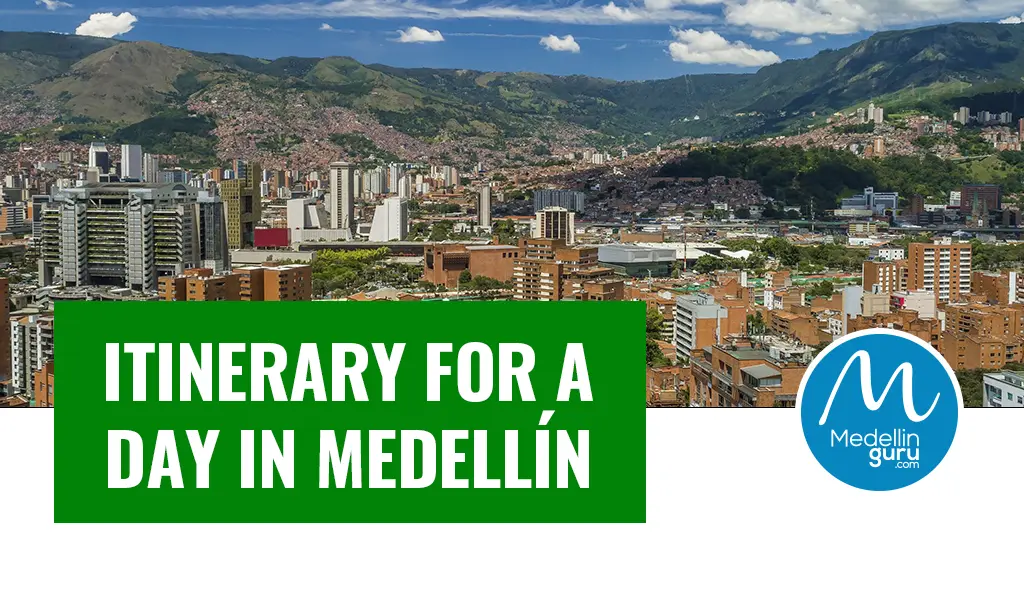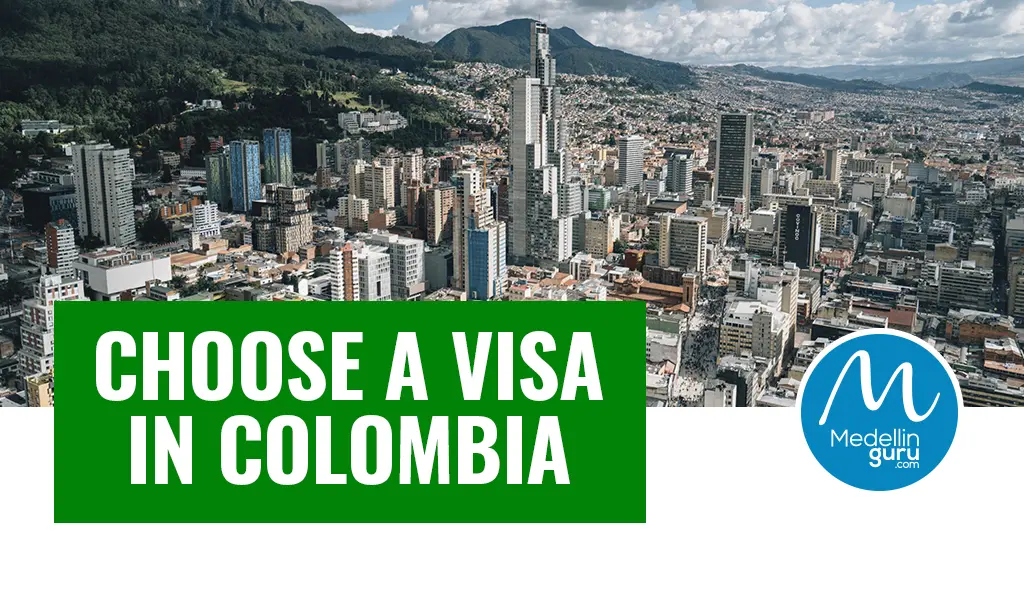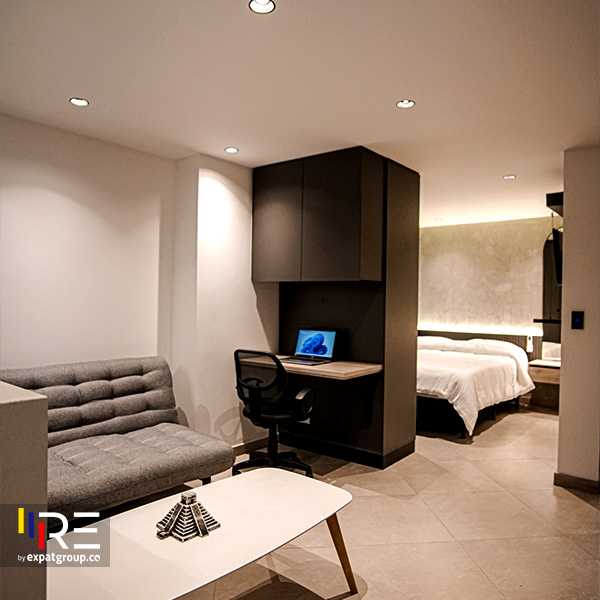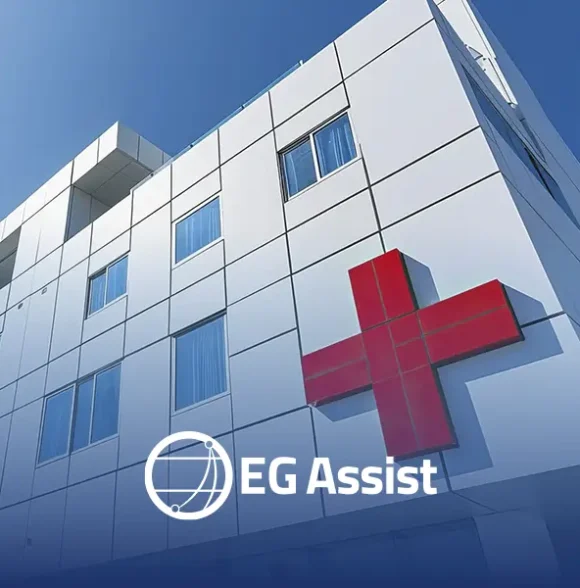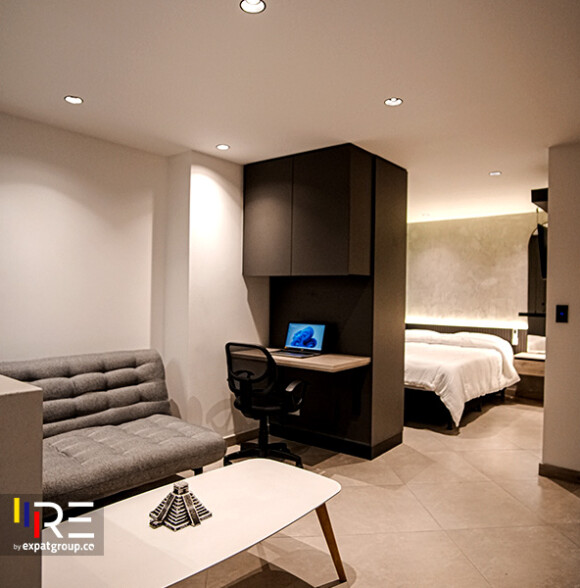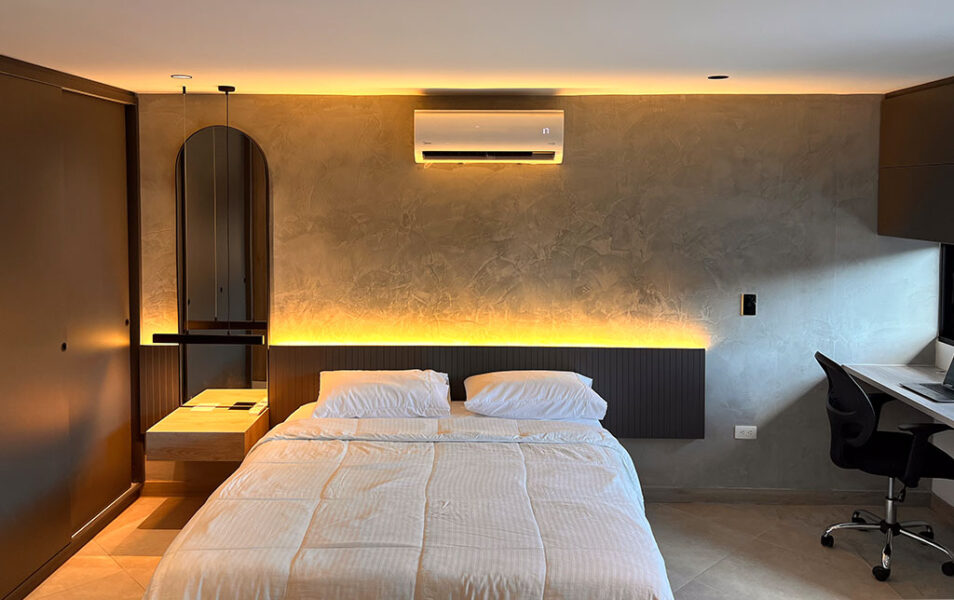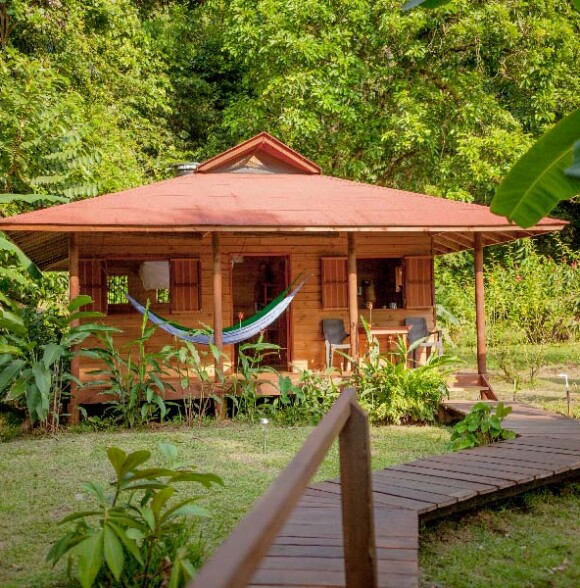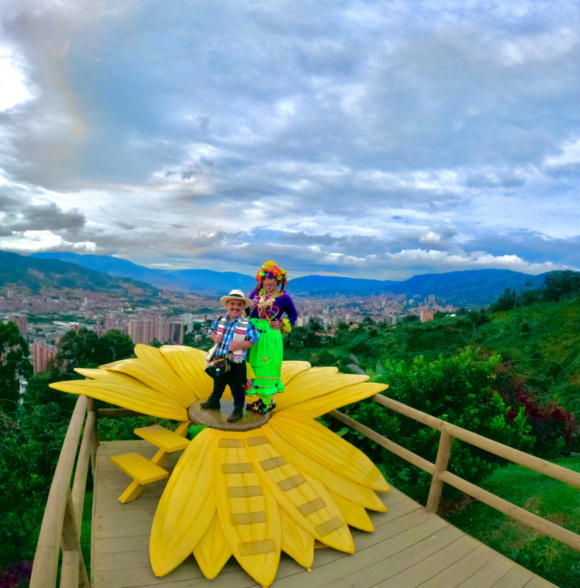Colombia experienced two coordinated and deadly attacks that have deepened concerns about security in the country’s southwestern region and northern Antioquia department. The first incident took place in the municipality of Amalfi, Antioquia, where a police helicopter providing air support for manual coca crop eradication was downed by an explosive-laden drone, killing 13 police officers on board. The attack was attributed to the 36th Front of the Estado Mayor Central (EMC), a dissident faction of the former FARC guerrilla group.
On the same day, a car bomb detonated near the Marco Fidel Suárez Military Aviation School in Cali, Valle del Cauca, killing at least six civilians and injuring over 60 others. The explosion caused significant damage to nearby buildings and triggered heightened security measures, including official investigations and a temporary ban on large trucks entering the city.
President Petro declared both events as crimes against humanity and labeled the armed dissident groups and drug trafficking organizations involved as terrorist entities subject to prosecution under international law. The Ministry of Defense launched “Operation Sultana,” a comprehensive security initiative aimed at dismantling these armed factions and preventing additional violence. These attacks have reignited national discourse on Colombia’s security challenges and the resilience of armed dissident groups circumventing the 2016 peace accord. They underscore the evolving threat posed by drone warfare and sophisticated explosive tactics in insurgent operations, as highlighted in official reports and media analyses.
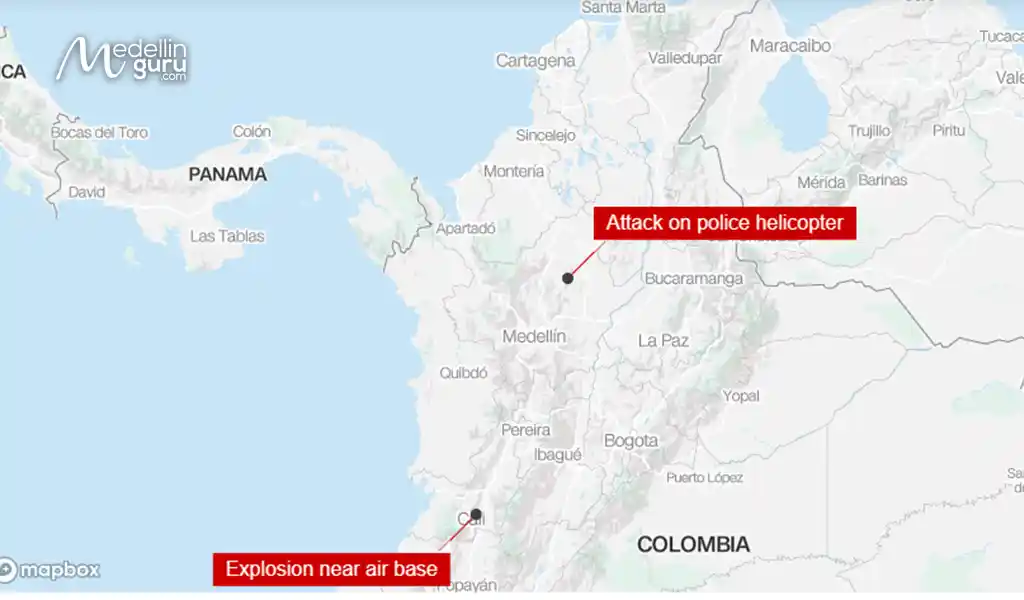
How Are Investigations and Official Responses Progressing?
The Colombian government has acted swiftly in response to the recent attacks in Antioquia and Cali. In his public statements, Petro stressed the government’s commitment to dismantling these criminal organizations and protecting Colombian citizens.
The Prosecutor General’s Office is leading the investigation into the car bomb explosion at the Marco Fidel Suárez Military Aviation School in Cali, deploying specialized teams from the Dirección contra las Organizaciones Criminales to collect forensic evidence, review intelligence, and apprehend suspects. Local officials confirmed at least six fatalities and over sixty injured in the attack, including children and pregnant women.
In Antioquia, it has been confirmed that the police helicopter downed near Amalfi was attacked by the 36th Front of the Estado Mayor Central (EMC), a dissident group employing drones as a tactical innovation. This strike killed 13 police officers who were conducting manual coca crop eradication in the region. The Ministry of Defense has prioritized capturing the perpetrators and bolstering security forces in the area.
Following the incidents, authorities launched “Operation Sultana,” a nationwide security initiative focused on neutralizing terrorist threats in Cali, Antioquia, and surrounding regions. Efforts include enhanced intelligence gathering, raids, and coordinated police and military operations. Several arrests linked to the Cali bombing have already been reported during these operations.
Public and private sector leaders in Colombia, including the Association of Industrialists (ANDI) and the national Congress, have joined calls for rigorous state action and condemned any attempts to destabilize peace efforts.
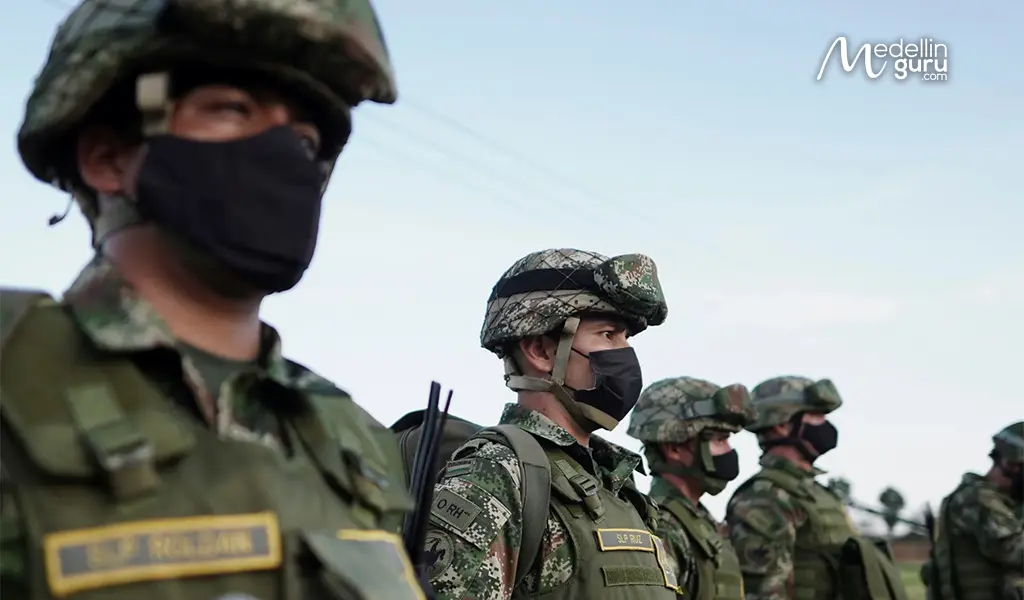
Do Attacks in Colombia Signal a Return to the Past?
For many wondering, “Is Colombia safe?” the recent attacks in Antioquia and Cali may rekindle memories of the country’s more violent past. However, it is vital to understand that the current security context, while serious, differs from the large-scale armed conflict that lasted for decades.
Since the 2016 peace accord, Colombia has not experienced nationwide terrorism on the scale seen during the conflict’s peak, though internal security challenges have intensified in 2025. Residual armed groups such as the 36th Front of the Estado Mayor Central, dissident factions of the former FARC, the National Liberation Army (ELN), and criminal organizations like the Gulf Clan continue to expand their territorial influence in many rural and remote areas.
According to reports from the Colombian Ombudsman’s Office and the United Nations Office for the Coordination of Humanitarian Affairs (OCHA), 2025 has seen a sharp increase in violence, displacements, and humanitarian risks. The number of people forcibly displaced internally in Colombia in the first quarter of 2025 quadrupled compared to the previous year, with over 80,000 displaced persons recorded by mid-year due to armed clashes and threats. These conflicts are localized but predominantly affect vulnerable Indigenous, Afro-descendant, and rural communities.
These recent attacks, officially classified by the Colombian government as terrorist acts, are isolated but highly visible manifestations of a broader pattern of escalating violence involving multiple armed groups competing for control of illegal economies and territories. The government’s swift and robust responses, including arrests and expanded military operations, reflect a markedly improved capacity to manage and contain these threats compared to the past.
How to Stay Safe as an Expat in Colombia?
For expats living in Medellin, Cali, and other Colombian cities, staying informed and aware remains the best defense against security risks. While recent attacks in Antioquia and Valle del Cauca are serious, most safety concerns for foreigners revolve around opportunistic crime such as theft, scams, and petty violence rather than politically motivated violence. Applying common sense and following practical safety strategies can greatly enhance your security and peace of mind.
What Should Foreigners Living Near Military and Police Installations Know?
Residences close to police stations, military bases, or army schools require extra vigilance, as these sites can sometimes be targeted by armed groups despite their heavy security.
-
Be Aware:
Constantly monitor your surroundings, especially when arriving home or leaving your residence.
-
Emergency Plan:
Prepare a clear plan with emergency contacts, including local police and embassy phone numbers, and know your nearest safe shelters.
-
Use Ride-Hailing Apps:
Avoid hailing taxis off the street. Instead, use reputable ride-sharing services like Uber, Didi, or local apps to ensure safety and tracking.
-
Limit Display of Valuables:
Keep jewelry, smartphones, and cash out of sight when in public. The local phrase “no dar papaya” means don’t give easy opportunities for thieves. Watch Your Belongings: Pickpocketing is rare, but it can happen in busy areas. Keep valuables close, avoid flashing expensive items, and trust your instincts—if something feels off, move away.
-
Stay Informed:
Regularly check local news and official advisories from embassies and local authorities for updates on security situations and areas to avoid.
-
Be Street Smart:
Avoid walking alone at night, especially in poorly lit or isolated areas; stay in well-populated neighborhoods such as El Poblado and Laureles in Medellin or Granada in Cali.
-
Learn Basic Spanish:
Even a limited ability to communicate in Spanish enables better interaction with locals and authorities, reducing vulnerability.
-
Travel Health Policy
Ensure you have travel health policy that covers medical emergencies, theft, and trip cancellations. Carry Only Essentials: When out, carry minimal cash and a copy of your passport; leave originals and valuables in hotel safes or secured accommodations.
Get the Best Visa-Compliant Health Policy
Click on the green button to get the health policy through the partnership with EG Assist
Where Can Expats Find Emergency Help in Colombia
Knowing who to call in an emergency is an essential part of being prepared while living in or visiting Colombia. Although we hope you never need to use these numbers, having quick access to this information could be vital in a crisis. This directory provides a practical guide for residents and visitors with clear contact pathways to various emergency services.
Emergency Guides to Ensure Your Safety in Colombia
Safety in Colombia is a crucial concern for foreigners, and the country has made great strides in recent years to improve its security. The Emergency Directory Guides by Medellin Guru are an excellent resource for any foreigner visiting Colombia, offering peace of mind and ensuring that visitors are well-informed and prepared in an emergency.
Foreigners visiting Colombia are encouraged to download these guides and have them handy during their stay. With the help of these guides, visitors can enjoy their time in Colombia without worrying about their safety. The Colombia Emergency Directory and the Safety Guide for US Citizens in Colombia are testaments to the platform’s commitment to providing valuable information to its users and making their experience in Colombia as enjoyable and safe as possible.
Medellin Guru's safety and security series
Safety is the biggest concern of foreigners visiting Colombia or planning to move to Colombia. So, we have a series of 18 popular articles about safety and security in Colombia:
- Is Medellin Safe? U.S. Embassy Colombia Talks About Security for U.S. Citizens
- Emergency Directory Guides to Ensure Your Safety in Colombia
- Is Colombia Safe? Colombia Security and Safety Tips
- Is Medellín Safe? Medellín Security and Safety Tips
- How to Travel and Live in Colombia Safe as a Foreigner
- Colombia Travel Health Policy: A Guide for Expats and Nomads
- How to Obtain 2 Years of Health Coverage for a Colombian Visa
- Migración Colombia alert: No entry for foreigners with Angel Watch reports
- What are the Safest Neighborhoods in Medellín and the Aburrá Valley
- 5 Best Neighborhoods in Medellín: A Guide to Choosing a Neighborhood
- New Airbnb Policies for Hosts in Colombia
- Medellín Robbery: Expat Experience Being Robbed at Knifepoint
- Colombia Gun Laws: Is it Legal to Have a Gun in Colombia?
- Scopolamine: The Realities of Devil’s Breath in Colombia
- Colombia Protests: Tips for Foreigners to Stay Safe During Protests
- Is Bogotá Safe? Bogotá Security and Safety Tips
- Is Cartagena Safe? Cartagena Security and Safety Tips
- Is Cali Safe? Cali, Colombia Security and Safety Tips
- Is Santa Marta Safe? Santa Marta Security and Safety Tips
- Is Pereira Safe? Pereira, Colombia Security and Safety Tips
- Is Manizales Safe? Manizales Security and Safety Tips
- Is Bucaramanga Safe? Bucaramanga Security and Safety Tips
- Is Barranquilla Safe? Barranquilla Security and Safety Tips
The Bottom Line: What you Need to Know About Recent Attack Incidents in Cali & Antioquia
While recent criminal incidents in Colombia are understandably concerning, they do not overshadow the significant strides the country has made toward becoming a safer destination in recent years. Medellin, in particular, has seen notable reductions in violent crime and enhanced security measures, making it a welcoming place for expats and digital nomads.
Medellin Guru Social media
Be part of our community. Find out about news, participate in events and enjoy the best of the city.


